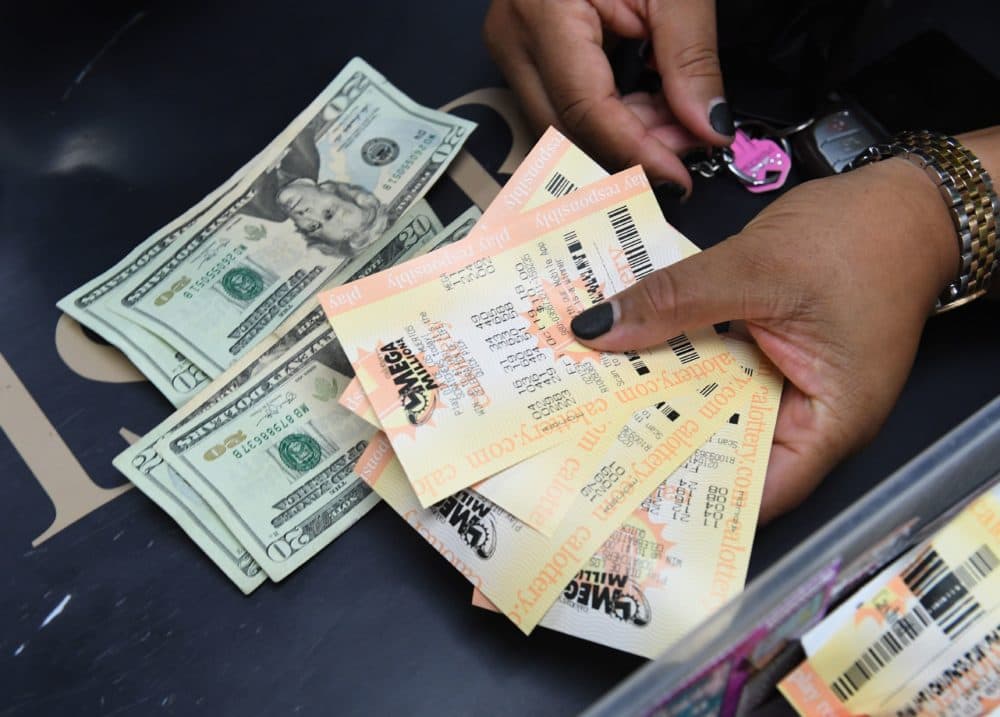Advertisement
Where Do Lottery Profits Go? States Use Them To Bolster Their Budgets
Resume
The jackpot for Tuesday night's Mega Millions has reached $1.6 billion, the highest prize ever in the history of the lottery.
Here & Now's Peter O'Dowd speaks with Liberty Vittert, visiting assistant professor in mathematics and statistics at Washington University in St. Louis, who says that many states have come to rely on lottery profits for funding their budgets.
Interview Highlights
On how much states profit from the lottery
"I think overall, we spend $73 billion a year on the lottery. So Missouri had a $1.3 billion revenue last year. New York had, I think almost $3.2 billion."
On states that aren't using lottery money as intended
"States originally told us, when they decided to create these lotteries, that the money would be going as additional funding to public education. So, 'Even if you lose, which you're most likely going to, at least the money is going to go to some good causes, is going to help your children have a better education.' But that's not exactly what happened.
"We originally thought this was going to go to fund wonderful programs, increased spending per student. But instead, it's really just funding the education budget. So, for example, in North Carolina in 2005, at the last second before the vote, they switched the wording from 'needs to go to additional funding for education' to 'it's at the discretion of the state legislatures,' which means in most states, spending per pupil is actually down, even though the lottery profits have skyrocketed."
"The average lowest-earning household spends 415 bucks on the lottery every year, in comparison to the highest earners, which spend about $100 ... meaning it's really a tax on the poor."
Liberty Vittert
On considering the lottery as a tax
"I think that's a perfect argument, and especially sad given that ... lotteries are played by the absolute lowest earners in our society. The average lowest-earning household spends 415 bucks on the lottery every year, in comparison to the highest earners, which spend about $100. So that means the lowest earners are spending four times what the highest earners are spending, meaning it's really a tax on the poor."
On why fewer Americans are playing the lottery since the 1980s
"I think people are getting smarter about how low their chances are. You know, if I tell you your chance of winning the Mega Millions is [1 in] 300 million, that means nothing to you. But if I tell you that's the same as your chance of flipping a coin 30 times in a row and getting a heads every time, or you're three times more likely to be killed by a vending machine than you are of winning the Mega Millions, it starts to make a lot more sense. We're getting smarter."
This segment aired on October 23, 2018.